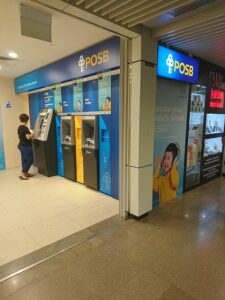According to international travel guru Rick Steves, there are several safety precautions that can help protect you and your money when you’re using debit and credit cards.
A great place to start is before you leave: Just pack the cards you think you’ll use and leave the others home. Keep your card protected from pickpockets in a money belt if traveling, or split them up between various pockets. Also, verify balances and charges before you leave so surprise issues can be handled immediately. If you’d rather check your balance while traveling, use caution when accessing financial matters — and other sensitive information — online.
 Next, make purchases with cash or credit card instead of a debit card. Limiting cash withdrawals from ATMs or other cash-dispensing machines is a safe idea, too. Why? Using a debit card takes your money directly from your bank account, opening up additional opportunities for a thief to take more. Another reason is that the money is gone until the bank or another institution investigates the fraud. Credit cards, on the other hand, allow you to keep your money until the issue is resolved.
Next, make purchases with cash or credit card instead of a debit card. Limiting cash withdrawals from ATMs or other cash-dispensing machines is a safe idea, too. Why? Using a debit card takes your money directly from your bank account, opening up additional opportunities for a thief to take more. Another reason is that the money is gone until the bank or another institution investigates the fraud. Credit cards, on the other hand, allow you to keep your money until the issue is resolved.
(Another perk for credit card usage is the points and mileage you earn that can be upgrades or entire vacations!)
Speaking of ATMs, you can’t be vigilant enough when it comes to their usage. They are breeding grounds for scams. From card skimmers to lurking thieves, you’d be surprised at how quickly things can go bad. A good first step is to memorize your PIN code. Writing it on the card is the same as giving your money directly to a random stranger. Choose four digits that may be significant to you. If you don’t trust your memory — or think jet lag will interfere — store a hint or clue that will refresh your memory on your phone or somewhere separate from the card.
Before inserting your card, inspect the machine for anything that looks damaged or loose. Be cautious if the card slot bulges dramatically as it could be a sign of a card-skimming device that will capture your keystrokes when you enter your PIN. If you’re not sure, go into the bank or another ATM.
While at the machine, be aware of your surroundings. People may look over your shoulder for your PIN, so block their view with your free hand or turn your body. Don’t worry about hurting their feelings because you think they may be trying to get your PIN, worry about your money being gone. Lurking strangers may act helpful, but they’re actually helping themselves to your money.
Should your card or cash get stuck, try to remain calm. Then remember not to re-enter your PIN. Thieves can pose as good Samaritan and encourage you to try the PIN again. Unbeknownst to you, the thieves have rigged the machine to capture your card, so when you leave, they have access to both your card and PIN. If possible, stay with your card and have a traveling companion enter the bank and report the situation.
A lost or stolen card should be reported immediately to the issuing institution. You lower your liability the sooner you act.
Also, keep the phone numbers of your credit card issuers on your phone (Visa: 303/967-1096, MasterCard: 636/722-7111, American Express: 336/393-1111) and those associated with your other cards on your phone or stored someplace will help you take action sooner. You may be responsible for $50, but acting quickly will make you feel better and get the process going for replacement cards started sooner.
Have you ever had troubles with your bank card on your international travel? Or do you take special precautions when using your cards? How do you protect yourself? Tell us about it on our Facebook page, or on our Twitter stream. You can also find us on our Instagram page at @TravelproIntl.
Photo credit: Deoma12 (Wikimedia Commons, Creative Commons 4.0)
